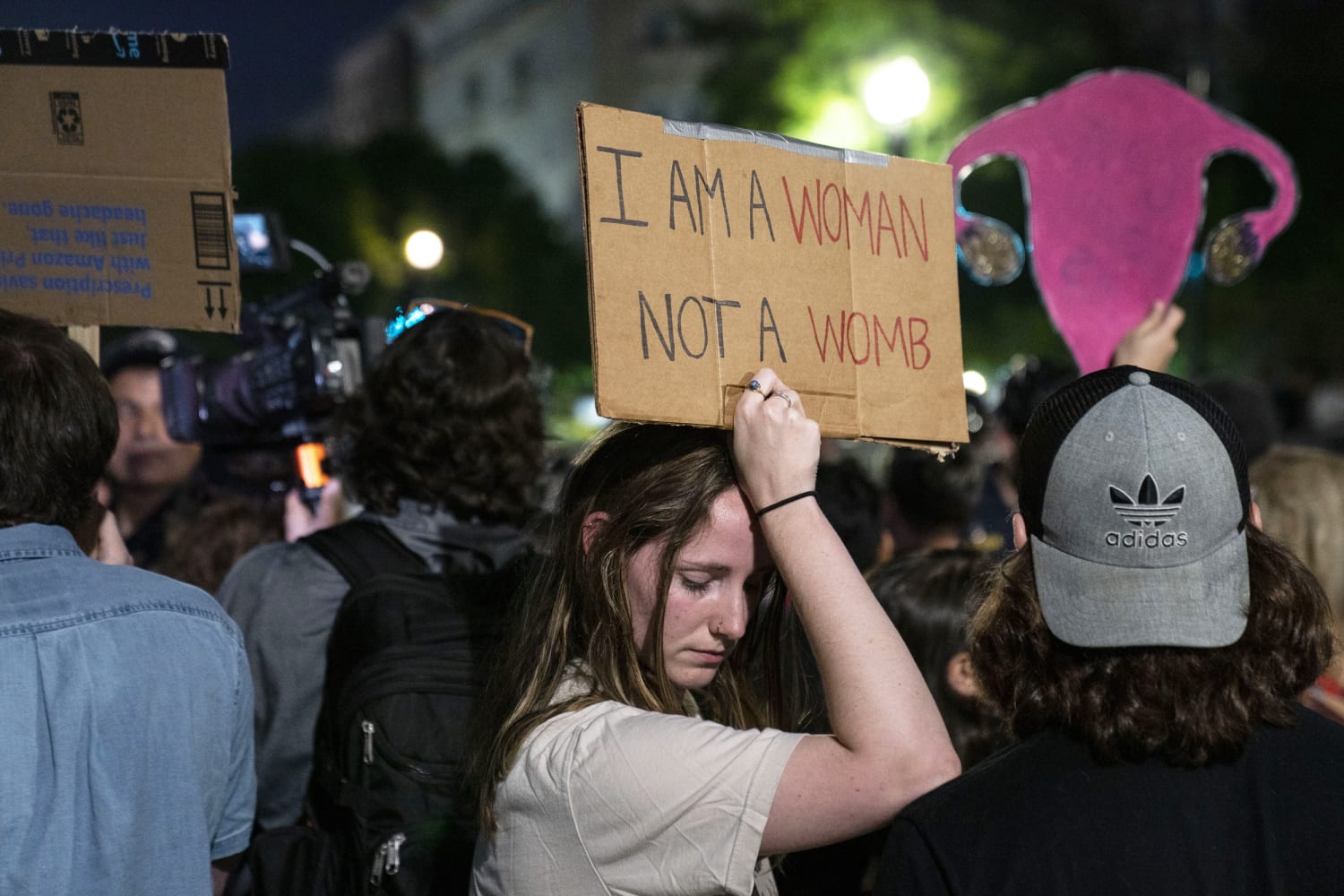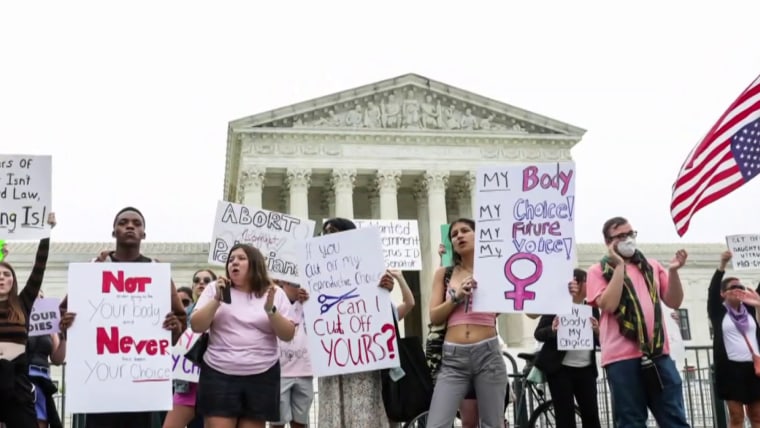In November I went under the knife for a bilateral salpingectomy, the removal of both of my fallopian tubes, at 24 years old. The procedure is permanent, irreversible and more than 99 percent effective in preventing pregnancy. Three months earlier on a muggy August day in Washington, D.C., I had walked into my gynecologist’s office to inquire about the procedure. I’d heard horror stories of doctors refusing to conduct the surgery on young, unmarried patients and expected similar disregard. However, I met with my surgeon within the week. She sat on a stool across from me and told me, “I’m not one of those paternalistic doctors. We’ll go through all the pros and cons so you can make an informed decision and whatever you decide is right for you, we’ll do.”
Everyone seeking access to reproductive health care deserves an affirming experience like mine. But the leaked Supreme Court opinion draft that would overturn Roe v. Wade, the landmark 1973 decision that established a constitutional right to abortion nationwide, and turn the decision back to states, could prevent conversations like this from happening.
There’s a tug-of-war between politicians who run on platforms to restrict access to reproductive health services and people who then respond by taking their health into their own hands.
Growing up in Indiana, where access to abortion and reproductive care is increasingly restricted, I saw firsthand how this basic right could be stripped away. In 2015, the GOP-controlled state House and Senate, and Mike Pence, who was the governor of Indiana at the time, faced national scrutiny for the Religious Freedom and Restoration Act, which is still in effect today. It was modeled after federal legislation cited in the Supreme Court decision that allowed Hobby Lobby and other corporations with religious objections to refuse insurance coverage for certain contraceptives.
Many criticized the Indiana law for being written in a way that could allow doctors to deny services,including reproductive care, based on sexual orientation or gender identity. Following widespread boycotts to protect LGBTQ+ Hoosiers from discrimination, an amendment was later added to clarify that the law didn’t authorize providers to “refuse to offer or provide services, facilities, use of public accommodations, goods, employment, or housing to any member or members of the general public on the basis of race, color, religion, ancestry, age, national origin, disability, sex, sexual orientation, gender identity, or United States military service” — but many argue it lacks teeth. As vice president, Pence later championed a similar rule allowing health providers to refuse services such as abortion on religious grounds.
According to the Guttmacher Institute, as of 2017, there were only nine abortion facilities in the state, and 70 percent of women lived in a county that didn’t have one whatsoever. And fake “crisis pregnancy clinics” that falsely advertise reproductive care services and lie to unsuspecting pregnant people to prevent them from getting abortions have flourished across the state. Those who are able to get the care they need must often foot a $500-$1,000 bill.
I saw the dangers of this in high school when my best friend accidentally got pregnant. I secretly escorted her to an abortion clinic hoping for a consultation. To get a ride, my brother unknowingly dropped us off at a nearby store, and we walked along a grassy ditch to get to the clinic. We were met by protesters carrying 5-foot-tall wooden crosses, handing out plastic “fetus” replicas and DVDs on the horrors of abortion, while they screamed, “Your body is a temple!”
We made it through the two sets of locked, bullet-proof glass doors before we were turned away because she didn’t have an appointment, which required parental consent — unless she got a judge to bypass the requirement. We were 16 and couldn’t figure out how to get around that. She was forced to carry the pregnancy.
This experience is tragically common. My home state has one of the highest teen birth rates in the country, according to data from the Centers for Disease Control and Prevention. Out of more than 7,600 abortions recorded in 2019, nearly 800 were for teenagers under the age of 19. This is driven, in part, by the “abstinence-only” curriculum, which blocks mention of contraception and teaches students that the only method to prevent pregnancy is by not having sex until (assumed heterosexual) marriage. Abstinence-only programs don’t work. In fact, people denied sexual education and access to contraceptives are more likely to have unprotected sex than their informed peers. Contraception is the most effective method to prevent sexually transmitted infections, unplanned pregnancies and abortions. Yet our leaders continue to justify their accelerating attempts to restrict basic sexual health care and education.
Lawmakers legislate who gives birth and who doesn’t to exert power — particularly over poor people, Black people and other people of color.
States pushing to quell abortion have also seen unexpected ramifications of these restrictive laws. “Heartbeat” bills, which aim to ban all abortions six weeks after conception, which is sometimes less than a week after a missed period, are having an adverse effect. Instead of cutting down on abortions, the limited time sometimes forces people to rush the decision over whether to continue a pregnancy, and they choose to have an abortion before the six-week mark out of fear of missing the cutoff time.
Lawmakers legislate who gives birth and who doesn’t to exert power — particularly over poor people, Black people and other people of color. The attempt to overturn Roe v. Wade has been years in the making. People in Republican-led states, such as where I grew up, have been victims of the decades-long campaign to legislate away our bodily autonomy.
There’s a tug-of-war between politicians who run on platforms to restrict access to reproductive health services and people who then respond by taking their health into their own hands. I was among the thousands of people who rushed to get an IUD in the wake of Donald Trump’s election. Having lived under Pence as governor, I knew that he and his supporters would stop at nothing to gut access to reproductive care.
I’d been on the birth control pill since I was 16. I hated the side effects and worried that it would fail when I missed a dose. Long-acting birth control methods like IUDs and arm implants last anywhere from three to 10 years and are more effective with fewer side effects than the pill. The IUD’s long-lasting protection provided welcome relief, but the process to get it was unexpectedly restricted.
I was still living in Indiana at the time and had to meet my doctor at an unfamiliar, rented out facility because the Catholic hospital network where she practiced banned contraception and abortion procedures on its campus. She was in a rush because she had to drive back to the hospital after my procedure where another patient of hers was in active labor.
Ironically, in my efforts to prevent pregnancy, I experienced excruciating pain equivalent to a contraction. The relief I’d felt was quickly overshadowed by the dread knowing I would have to replace it every few years. Anything was preferable to pregnancy — I’ve always known I never want to go through that — but I felt demoralized that the only “choices” I’d had up to that point were between bad and worse. Four years and two IUDs later, I eagerly chose to pursue sterilization and am thrilled with my decision.
Getting my fallopian tubes removed means I will never have to go through pregnancy against my will. Millions of others will not be able to say the same, as the Supreme Court appears ready to strike down Roe v. Wade. Growing up witnessing the political football lawmakers play with our bodies and the devastating impact it has on people’s lives made sterilization a no-brainer for me. People are entitled to the care that’s best for them — abortion, contraception and sexual health services are key components of that.
Source: | This article originally belongs to Nbcnews.com











